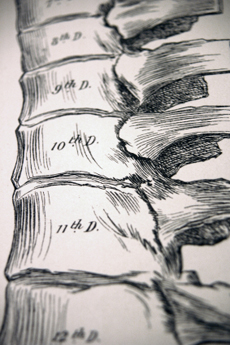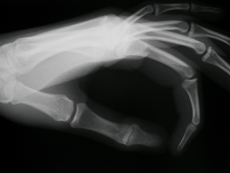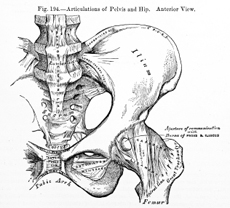
Frequently Asked Questions
Click on the question to
jump to the answer.
Many of our staff are bilingual and will be happy to assist you in
Spanish, either by email or by phone. Please contact Alejandra at
310-337-3700, ext. 264, or via: alejandra.villeges@schiffmanmd.com
Do you accept
my Private Insurance (PPO or HMO)? Medicaid? Medi-Cal?
Do you provide medical care and
surgery on a lien basis?

I don’t have insurance. Can
I pay for my doctor’s fees with a credit card or personal check?
How is Spine Care &
Orthopedic Physicians different from other medical offices?
How long will my initial
appointment take?
I have pain in multiple body parts. Can I receive treatment for this at SCOP?
What kind of paperwork will I need to bring with me to my initial appointment?
Can I still be seen if I don’t have my old medical records?
Must I have x-rays taken at my initial appointment?

What kind of diagnostic tests might the doctor recommend?
I would like to have non-invasive conservative care before considering surgery. Can I still treat at SCOP?
Will I need surgery? If yes, will I need to have any other examinations before proceeding?
What should I expect from my surgery?
How long does an arthroscopic surgery take to perform, and how long will I be in the hospital?
If I am unable to work, do I qualify for disability income?
If I have surgery, how long will I need to be off from work?
If I need to see a “Specialist” in another field, can I receive a referral from the SCOP doctor?
What is an “artificial disc”?
What kind of “hardware” will be used in my back if I have spine surgery, and will I be able to travel with metal in my body?
What is “minimally invasive” surgery?
How long does the average spine surgery procedure take, and how long will I be in the hospital afterwards?

Does your office have a pharmacy where I can get my medications?
I don’t have insurance and can’t afford to pay cash for my medications. Can I be provided with medication on a lien basis?
Do you accept my Private Insurance (PPO or HMO)? Medicaid? Medi-Cal?
The doctors at SCOP are participating providers with many private insurance carriers. However, because there are so many different insurance carriers and policy types, before we schedule your first appointment, our staff will verify all of your insurance benefits for you, which should help prevent you from receiving any unexpected bills from the insurance carrier in the future. We are unable to accept HMO insurance, Medi-Cal, or Medicaid policies.
Back to top of page
Do you provide medical care and surgery on a lien basis?
SCOP is one of the few multi-disciplinary clinics in the Los Angeles area that is able to provide nearly all forms of medical care for our patients on a personal injury lien basis. Our office’s authorization staff will work with your attorney in reviewing your case before proceeding with any invasive treatment on a lien basis.
Back to top of page
I don’t have insurance. Can I pay for my doctor’s fees with a credit card or personal check?
We gladly accept payments in cash, VISA, Mastercard, or personal check. In the event of a bounced check, you will be billed $25.00 for processing, plus any applicable bank fees incurred due to the returned check.
Back to top of page
How is Spine Care & Orthopedic Physicians different from other medical offices?
The doctors who practice at SCOP set themselves apart from other medical offices by providing top-notch medical care for each of our patients, regardless of whether they are being seen for possible surgery, chiropractic maintenance care, post-operative rehabilitation, or any and all stages in between. Because our office is a multi-disciplinary facility, we are able to provide our patients with door-to-door service, where they can receive their treatment, as well as enjoy the benefits of having an in-house pharmacy, radiology department, and basic durable medical goods.
Back to top of page
How long will my initial appointment take?
Because our doctors are specialists in their individual fields, we often see our own patients, as well as other doctors’ patients who may need a second opinion. We ask that our patients be prepared to spend as much as two hours in our office on the day of their initial appointment. This will allow for enough time for our staff to obtain your past general medical history, assess the history of your current injury or condition, obtain x-rays, and get you prepared to be examined by one of our highly trained physicians.
Back to top of page
I have pain in multiple body parts. Can I receive treatment for this at SCOP?
Although we would need to examine you in order to accurately determine whether or not your condition can be treated in our office, our doctors are trained in a wide variety of medical fields. As such, we are able to provide medical care for a multitude of medical conditions, ranging from something as simple as a musculoskeletal strain, to something more complex like a state-of-the-art artificial disc replacement in your back, or a minimally invasive total hip or knee replacement. If you are one of the few people that we cannot help, we will be honest with you and let you know that as well.
Back to top of page
What kind of paperwork will I need to bring with me to my initial appointment?
All patients should bring a valid form of identification. If you are treating under private insurance, you should bring any available medical records with you, as well as the names of any medications that you are currently taking. If you are being treated under a Workers’ Compensation case, we will coordinate with your attorney (if you have one), so that we can get any necessary medical or legal records.
Back to top of page
Can I still be seen if I don’t have my old medical records?
Depending on your type of case, we may be able to see you for your initial examination without your prior medical records. Our new patient coordinator will confirm this with you when you make your appointment for an initial examination.
Back to top of page
Must I have x-rays taken at my initial appointment?
If you have had x-rays taken within the prior 4-6 months, and one of our doctors determines that they meet with our technical and quality control requirements, you may not need x-rays taken on your initial visit. However, if you have not recently had x-rays taken, it is our standard policy to obtain x-rays at the time of your initial visit, as this is an essential part of performing a detailed and thorough evaluation of your individual medical condition.
Back to top of page
What kind of diagnostic tests might the doctor recommend?
Depending on your individual medical condition and diagnoses, our doctors may order studies such as an MRI, a CT scan, or an electrodiagnostic test (EMG) to evaluate your spinal and/or peripheral nerve system. If you are treating with our internal medicine specialist, then our staff may also obtain a sample of your blood in order to perform any necessary laboratory testing that is necessary to make an accurate diagnosis, as well as an appropriate recommendation for your medical treatment plan.
Back to top of page
I would like to have non-invasive conservative care before considering surgery. Can I still treat at SCOP?
Our doctors understand it is a serious decision to proceed with recommended surgery. Because this is such an important decision, we insist that each of our patients understands the potential risks, benefits, and alternatives to surgery. Therefore, if your doctor believes that you may obtain further benefit from having a course of conservative treatment before proceeding with surgery (if necessary), we will do our best to provide that care for you in our office. You will never be pressured into proceeding with surgery against your will or better judgment, and every possible conservative solution will be explored before considering surgery.
Back to top of page
Will I need surgery? If yes, will I need to have any other examinations before proceeding?
Only your doctor can make a decision on whether or not you are a candidate for surgery, as there are many factors which need to be considered before such a serious recommendation is made. Assuming that your doctor has made a recommendation for surgery, and that you have provided us with your informed consent and wish to proceed, we will arrange for you to have an internal medicine pre-operative evaluation, at which point the doctor will ensure that you are able to safely proceed with anesthesia and your specific surgical procedure.
Back to top of page
What should I expect from my surgery?
Our doctors and staff recognize that surgery is a very serious proposal that is only recommended when all other reasonable conservative treatment measures have been tried and proven to be ineffective. Ultimately, whether to proceed with surgery is your decision, however, it is our goal to provide you with as much pain relief as possible so that you can improve the quality of your life by being able to do more of those things that you are presently unable to do because of your painful medical condition.
Back to top of page
How long does an arthroscopic surgery take to perform, and how long will I be in the hospital?
The length of any given arthroscopic surgery is dependent upon the type and extent of damage in the injured body part, as that is what will determine how much repair work the surgeon is required to perform, which ultimately determines how long the procedure will take. However, the average time for an uncomplicated arthroscopic shoulder repair is approximately 45 minutes to one hour, while an uncomplicated arthroscopic knee surgery would be expected to take approximately 30 minutes to one hour.
Back to top of page
If I am unable to work, do I qualify for disability income?
If the doctor determines that you are unable to safely perform your current job duties, he or she will likely try to find out what activities you are required to perform that are problematic, after which s/he will then make recommendations precluding you from performing those tasks at work. If, for whatever reason, your employer is unable to accommodate the recommended work restrictions, then you may be considered temporarily totally disabled, in which case your doctor may recommend that you file for disability benefits with the appropriate agency.
Back to top of page
If I have surgery, how long will I need to be off from work?
The length of post-operative recovery time varies depending on the type and extent of surgery performed. Another major factor would be the specific healing capacity of your body, as well as age, overall health, and other concurrent illnesses that play a significant roll in determining how fast your body can heal. Your doctor will work closely with you following your surgery in order to determine when it is safe for you to start rehabilitation therapy, as well as the eventual return to work.
Back to top of page
If I need to see a “Specialist” in another field, can I receive a referral from the SCOP doctor?
Our doctors have professional relationships with hospitals and many other doctors who are specialists in other areas of medicine. If our staff physicians are unable to properly treat or diagnose your individual medical condition, we will do everything possible to find a specialist who does treat it, and to make a referral recommendation for a specialist who is most conveniently located, so that you can see results as soon as possible.
Back to top of page
What is an “artificial disc”?
An artificial disc is a prosthetic device which “replaces” one of your damaged, injured, or otherwise “worn-out” intervertebral discs. Although there are several different types of artificial discs currently in production, the one preferred by Dr. Schiffman is the “ProDisc” artificial disc, manufactured by Synthes North America, as it has been approved for use by the U.S. Food & Drug Administration and it has a longstanding success record in the United States and several European countries.
Back to top of page
What kind of “hardware” will be used in my back if I have spine surgery, and will I be able to travel with metal in my body?
The material used in most spine surgery cases performed by Dr. Schiffman is usually non-magnetic, so will not set off the metal detectors used at the airport for security screening purposes. There are, however, other types of hardware, such as the ProDisc artificial disc, or total knee/total hip replacement hardware, which are magnetic and would be expected to set off a metal detector. Therefore, it is our general policy to advise our patients who may be concerned with this potential issue, to take along a copy of their x-ray showing the metallic hardware that is implanted in their body, as this will generally satisfy any reasonable airport security screening concerns.
Back to top of page
What is “minimally invasive” surgery?
Minimally invasive surgery utilizes specific techniques that are designed to reduce the amount of tissue damage that is caused by the surgeon when performing certain surgical procedures. Recent advancements have been made in the development of microscopic imaging tools and arthroscopic surgical techniques that allow a skilled surgeon to perform the same type of surgical repair (as would have otherwise been performed) with a traditional open procedure, with the main difference being the significantly smaller incisions made (as compared to those that would have been necessary with a traditional open surgical technique). Minimally invasive surgery benefits the patient greatly by allowing them to develop less painful post-operative scar tissue when healing, thereby decreasing their post-operative recovery time and improving their overall post-surgical results.
Back to top of page
How long does the average spine surgery procedure take, and how long will I be in the hospital afterwards?
Although each patient’s case is different, on average, a “typical” uncomplicated single-level spine surgery procedure is usually accomplished in about an hour. Our patients are usually up on their feet the following day and go home 1-2 days after their surgery. You will usually have your first “post-operative” visit with the doctor about seven-to-ten days after your surgery, and once he verifies that you have had an adequate amount of time to begin the healing process, he will then determine when you can safely begin rehabilitative therapy and exercise.
Back to top of page
Does your office have a pharmacy where I can get my medications?
For your convenience, SCOP has a full service in-house pharmacy to take care of your prescription medications. You do, however, have the right to ask the doctor for a prescription in the event that you would like to receive your medications from an outside pharmacy.
Back to top of page
I don’t have insurance and can’t afford to pay cash for my medications. Can I be provided with medication on a lien basis?
In most Workers Compensation and Personal Injury cases, our doctors will be able to provide you with medications on a lien basis. This means that the doctor will provide you with the prescribed medications as needed, the costs of which would be reimbursed in the future when your individual case is settled. Unfortunately, our office policy does not allow for dispensing medication on a lien for our patients who are treating under their private insurance.
Back to top of page
Home | About Us | Contact Us | Your Visit | Our Locations | Frequently Asked Questions | Resources, Links & News | ©2010 Spine Care & Orthopedic Physicians
